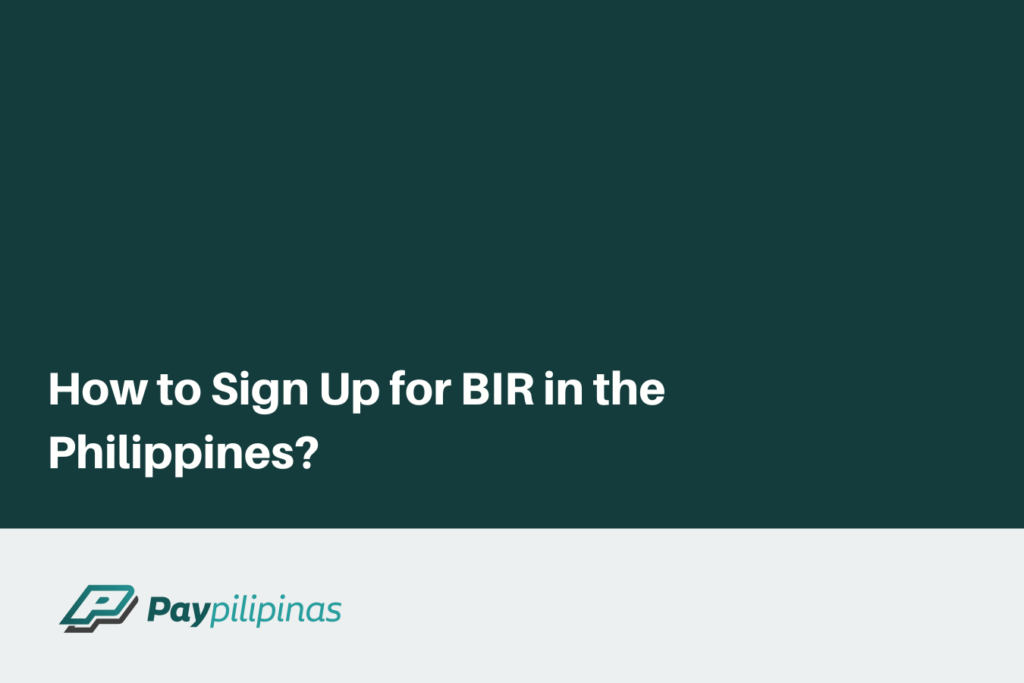What are the steps to sign up for BIR in the Philippines?

Part of earning is paying taxes, and to do this, employees must register with the Bureau of Internal Revenue (BIR). Registering with the BIR would give you your Taxpayer Identification Number (TIN). For local employees in the Philippines, the BIR requires their registration within ten days of employment.
There are many ways to register with BIR. Employees can go to the Revenue District Office (RDO) or register through their employer. Should the employee register through their employer, the employer can use the BIR eRegistration (eREG) System.
How can employees directly sign up for BIR?
In-person through the RDO
For self-employed and unemployed applicants from the Philippines, they can submit the following to their nearest RDO:
- Two original and filled-out BIR Form 1902: You can get this in the RDO’s client support area or download and print a copy from the BIR website.
- A photocopy of a government-issued ID
- Philippine National ID
- Passport
- Driver’s License
- Community Tax Certificate
The ID photocopy must be clear, readable, and untampered.
- If married, the married woman must submit a photocopy of her marriage contract from the Philippine Statistics Authority (PSA) or the local civil registry.
Through employers
Employees may ask their employers to register them using the BIR eRegistration (eREG) System. The applying employee must submit their accomplished forms and other required documents to the employer before they can process the registration.
Once all the documents are in, the employer secures the employee’s TIN through the eREG System. The employer submits the following documents to the BIR counter:
- Printed eREG Confirmation Page
- BIR Form 1902
- Documentary requirements
FAQs on the BIR application?
Can I sign up for BIR online without my employer?
No. If you are an employee, you cannot register online. The online platform only registers businesses, which means signing up on the online platform is signing up as a business entity. In other words, you will be taxed as a business entity rather than an employee and need to file income tax returns.
How can freelancers register with BIR?
Here are the steps to register as a freelancer with the Bureau of Internal Revenue (BIR), based on the search results:
Get a Taxpayer Identification Number (TIN)
You can get a TIN by filling out BIR Form 1901 and submitting it to the BIR. Usually, you already have a TIN before working.
Get an Occupational Tax Receipt (OTR)
For non-licensed professionals, you need to get an OTR from your city hall or municipal hall. Some municipalities do not give OTR, so you can skip this step.
Prepare your government-issued IDs
You need to prepare government-issued IDs with your full name, address, and birth date, as well as your birth certificate.
Compile all the BIR requirements
Gather all the requirements needed for registration, such as your TIN, OTR, government-issued IDs, and birth certificate.
Apply for your Certificate of Registration (COR)
Fill out BIR Form 0605 and pay the COR fee of P500 to any authorized agent bank of your Revenue District Office (RDO).
Buy Journal Ledgers for your Books of Accounts
As a freelancer, you need to keep track of your income and expenses. You can buy Journal Ledgers for your Books of Accounts.
Register your Books of Accounts
Have your Books of Accounts signed and stamped by the same RDO where you are registered.
Learn how to manage your books
After receiving your COR and OR, learn how to manage your books. As an online freelancer, you’ll be given a Journal or a Ledger. Subsidiary Professional Income Book, Subsidiary Purchases, or Expenses Books will do as well.
Once you have completed the registration process, you can issue receipts that most companies are looking for, and you demonstrate your credibility and trustworthiness. As a registered freelancer, you are legally mandated to pay your taxes.
Related: